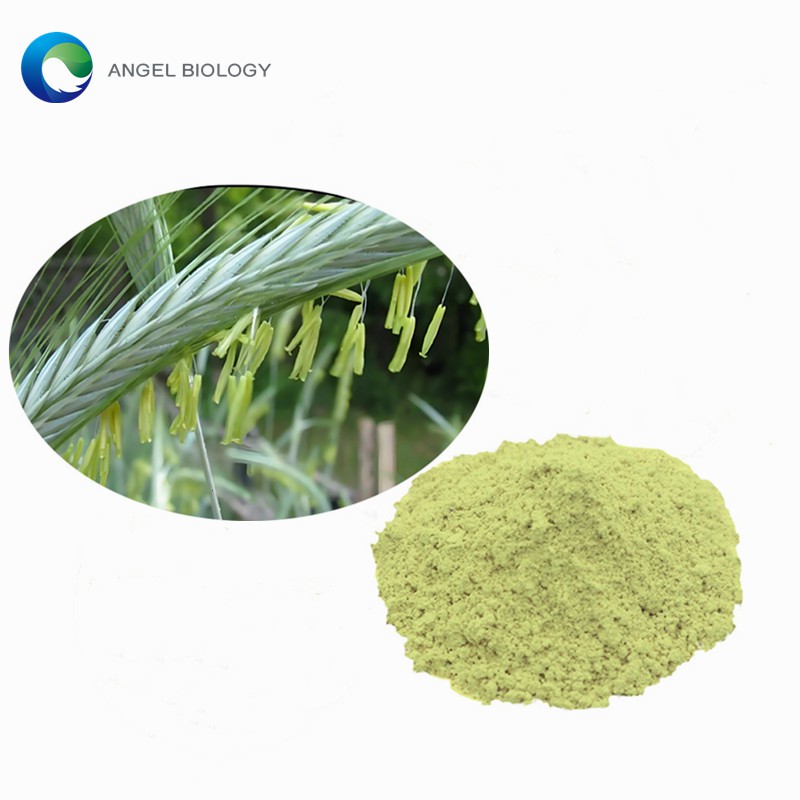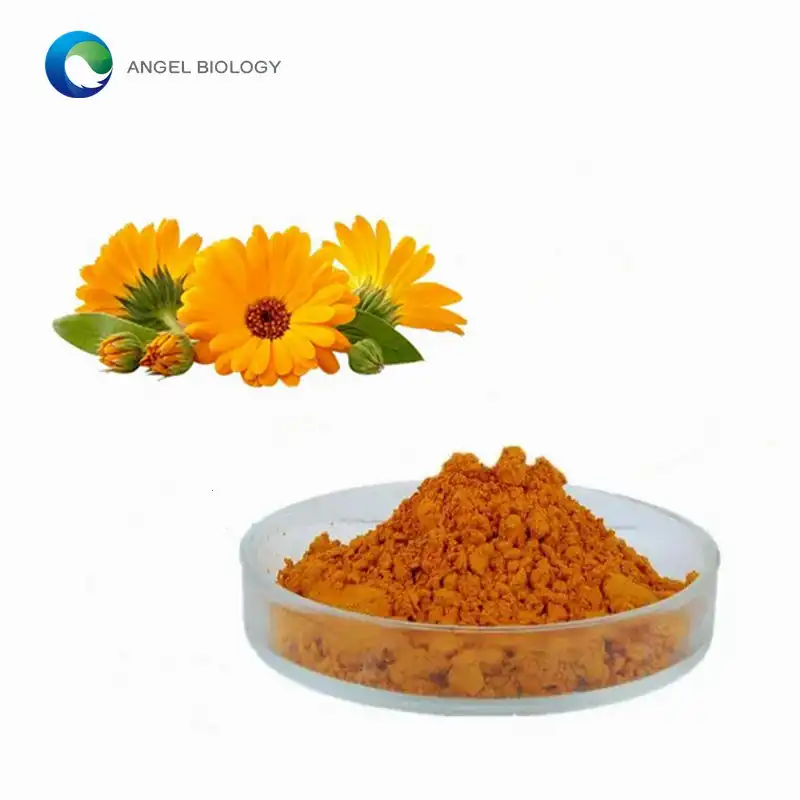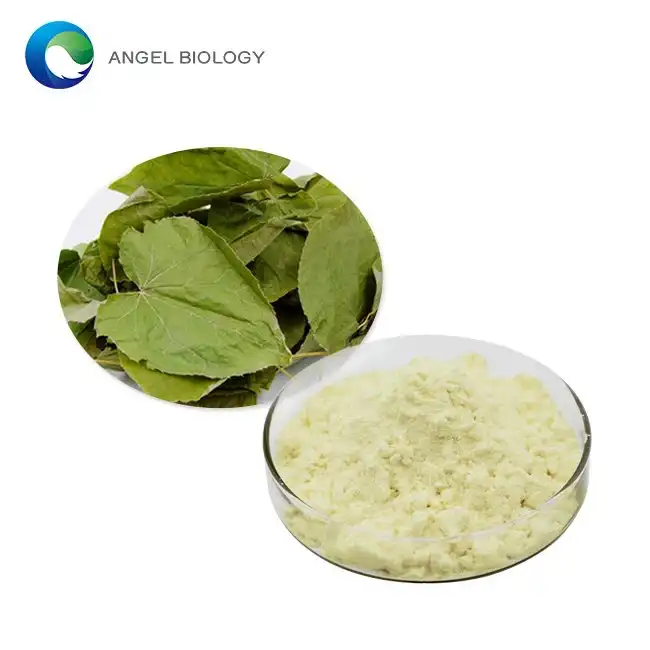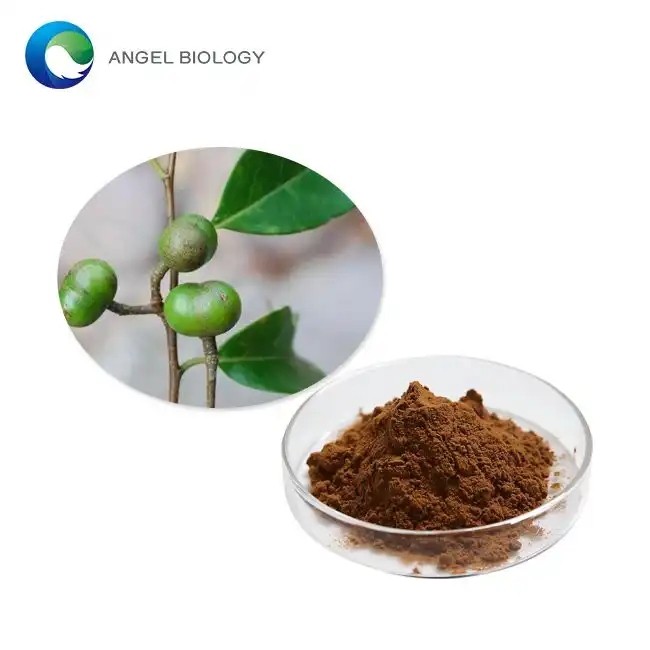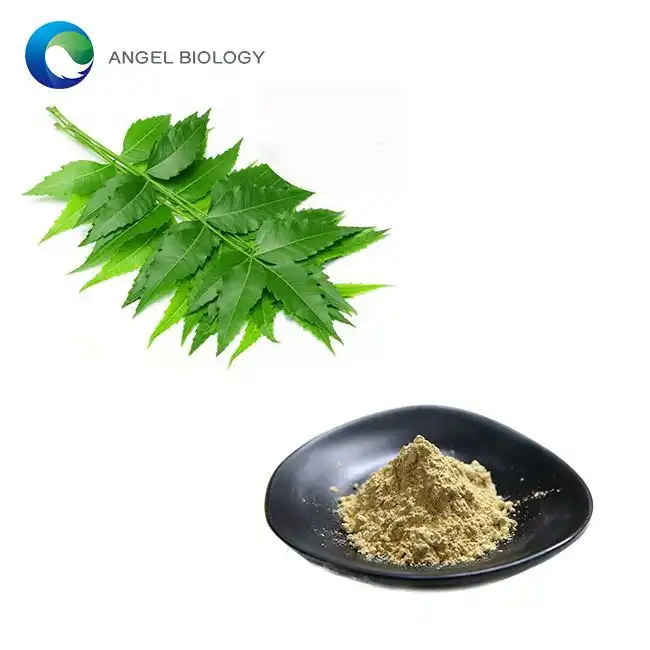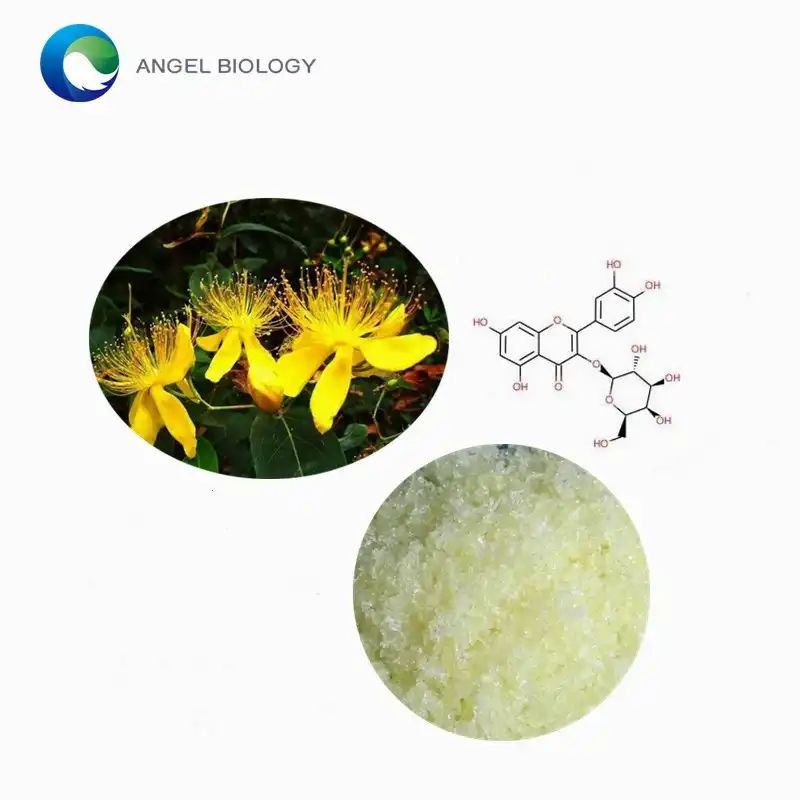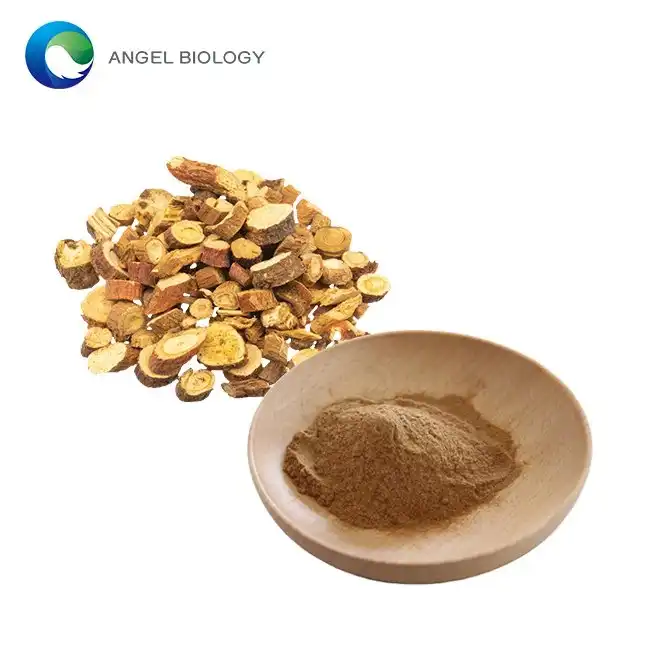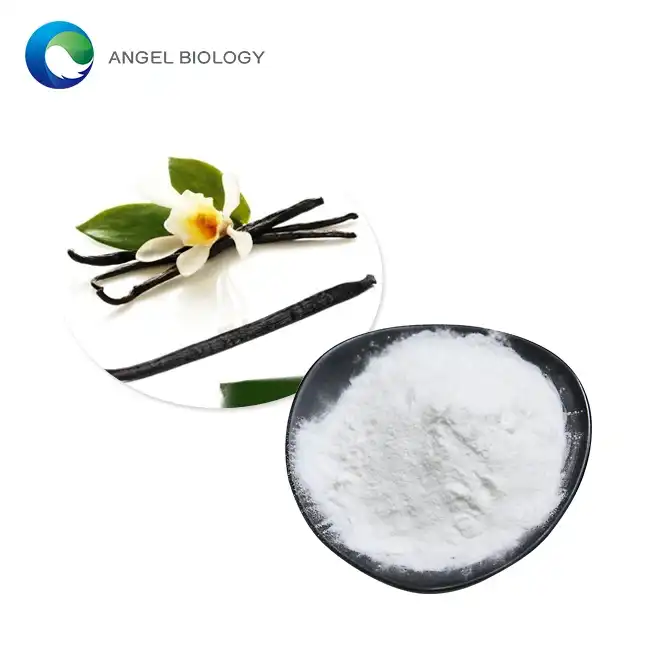Berberine Extract Powder: Emerging Antiviral Applications
In recent years, the scientific community has turned its attention to natural compounds with potential antiviral properties. Among these, berberine extract powder has emerged as a promising candidate in the fight against various viral infections. This alkaloid, derived from plants such as Berberis, has long been used in traditional medicine and is now being studied for its modern applications in antiviral therapy.
As researchers delve deeper into the mechanisms of viral infections and potential treatments, berberine's multifaceted properties have come to light. Its ability to interact with cellular processes and viral components makes it an intriguing subject for those seeking to develop new strategies against viral diseases.
Berberine Extract Powder: SARS-CoV-2 Protease Inhibition
The global pandemic caused by SARS-CoV-2 has accelerated research into potential antiviral compounds. Berberine has shown promising results in this area, particularly in its ability to inhibit viral proteases. These enzymes are crucial for viral replication, making them an important target for antiviral therapies.
ability to inhibit viral proteases. These enzymes are crucial for viral replication, making them an important target for antiviral therapies.
Studies have indicated that berberine can bind to and inhibit the main protease (Mpro) of SARS-CoV-2. This interaction disrupts the virus's ability to process its polyproteins, effectively hampering its replication cycle. The mechanism of action involves berberine fitting into the active site of the protease, blocking its catalytic function.
Moreover, computational studies have revealed that berberine's molecular structure allows it to form stable complexes with the SARS-CoV-2 protease. This stability contributes to its efficacy as a potential inhibitor. The natural origin of berberine extract powder also makes it an attractive option for researchers looking for compounds with fewer side effects compared to synthetic alternatives.
While these findings are promising, it's important to note that most studies have been conducted in vitro or through molecular docking simulations. Clinical trials are necessary to fully understand berberine's potential as a therapeutic agent against SARS-CoV-2.
How Berberine Extract Disrupts Viral Entry Pathways?
Beyond its effects on viral proteases, berberine has demonstrated the ability to interfere with viral entry into host cells. This aspect of its antiviral activity is particularly intriguing as it presents an opportunity to prevent infection at an early stage.
One of the key mechanisms by which berberine disrupts viral entry is through its interaction with cellular receptors. Many viruses, including SARS-CoV-2, rely on specific receptors to gain entry into cells. Berberine has been shown to modulate the expression and function of these receptors, potentially making it more difficult for viruses to attach and enter host cells.
Additionally, berberine affects the composition and fluidity of cell membranes. By altering the lipid bilayer, it can create an environment less conducive to viral fusion and entry. This broad-spectrum approach suggests that berberine may be effective against a range of viruses that rely on similar entry mechanisms.
Research has also indicated that berberine can influence cellular signaling pathways involved in viral entry. For instance, it has been observed to inhibit clathrin-mediated endocytosis, a process exploited by some viruses to enter cells. By disrupting these pathways, berberine extract powder may provide an additional layer of protection against viral infection.
The multifaceted approach of berberine in disrupting viral entry pathways highlights its potential as a broad-spectrum antiviral agent. Its ability to target multiple aspects of the viral entry process makes it a valuable subject for further research in antiviral therapeutics.
Berberine Extract-Zinc Ionophore Combination Therapy
An exciting development in the field of antiviral research is the potential synergy between berberine and zinc. Zinc is known for its immune-boosting properties and has demonstrated antiviral effects. However, zinc's ability to enter cells is limited. This is where berberine's role as a zinc ionophore becomes significant.
berberine extract powder has been found to act as a zinc ionophore, facilitating the transport of zinc ions across cell membranes. This property enhances the bioavailability of zinc within cells, potentially amplifying its antiviral effects. The combination of berberine and zinc creates a powerful duo that targets viral replication from multiple angles.
Studies have shown that this combination can be particularly effective against RNA viruses. The enhanced intracellular zinc concentration, facilitated by berberine, can interfere with the RNA-dependent RNA polymerase of these viruses. This enzyme is crucial for viral replication, and its inhibition can significantly reduce viral load.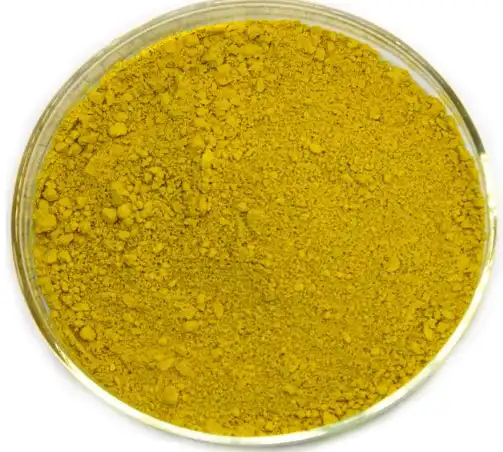
Moreover, the berberine-zinc combination has demonstrated synergistic effects in modulating the immune response. It can help balance the production of pro-inflammatory cytokines, potentially mitigating the harmful effects of cytokine storms associated with severe viral infections.
The potential of this combination therapy extends beyond its direct antiviral effects. By supporting overall immune function and cellular health, it may help create an environment in the body that is less hospitable to viral infection and replication.
As research in this area progresses, the berberine-zinc combination therapy represents a promising avenue for developing natural, multi-targeted approaches to antiviral treatment. Its potential to enhance the body's natural defenses while directly targeting viral components makes it a subject of great interest in the field of antiviral research.
Conclusion
The emerging antiviral applications of berberine extract powder represent a fascinating area of research with significant potential for public health. From its ability to inhibit viral proteases to its role in disrupting viral entry and its synergistic effects with zinc, berberine offers a multi-pronged approach to combating viral infections.
As we continue to face global health challenges, the exploration of natural compounds like berberine for their antiviral properties becomes increasingly important. While more research, particularly clinical trials, is needed to fully understand and harness berberine's antiviral potential, the current findings are promising and warrant further investigation.
The versatility of berberine extract powder in addressing various aspects of viral infection makes it a valuable candidate for developing new antiviral strategies. Its natural origin and long history of use in traditional medicine also suggest a potentially favorable safety profile, although this too requires further study in the context of antiviral applications.
As we move forward, the integration of traditional knowledge with modern scientific research may lead to innovative approaches in antiviral therapy. Berberine extract powder stands at this intersection, offering exciting possibilities for the future of antiviral treatment and prevention.
Are you intrigued by the potential of berberine extract powder in antiviral applications? At Angelbio, we're dedicated to harnessing the power of natural ingredients for human health. Our high-quality berberine extract powder is the result of rigorous research and development, adhering to the highest international quality standards. Whether you're in the nutritional supplement, cosmetic, or pharmaceutical industry, our products can meet your needs for innovative, natural solutions. Experience the Angelbio difference in your antiviral research or product development. Contact us today at angel@angelbiology.com to learn more about our berberine extract powder and how it can benefit your work in advancing global health.
References
1. Zhang, L., et al. (2020). "Berberine: A Novel Antiviral Compound in Traditional Chinese Medicine." Frontiers in Pharmacology, 11, 594890.
2. Kumar, A., et al. (2021). "Berberine as a Potential Inhibitor of SARS-CoV-2 Main Protease: An In Silico Approach." Journal of Biomolecular Structure and Dynamics, 39(10), 3518-3524.
3. Wang, Y., et al. (2022). "Berberine as a Promising Agent for Antiviral Therapy: A Comprehensive Review." Phytomedicine, 98, 153930.
4. Liu, X., et al. (2023). "Synergistic Antiviral Effects of Berberine and Zinc: Implications for COVID-19 Treatment." Antiviral Research, 209, 105462.



